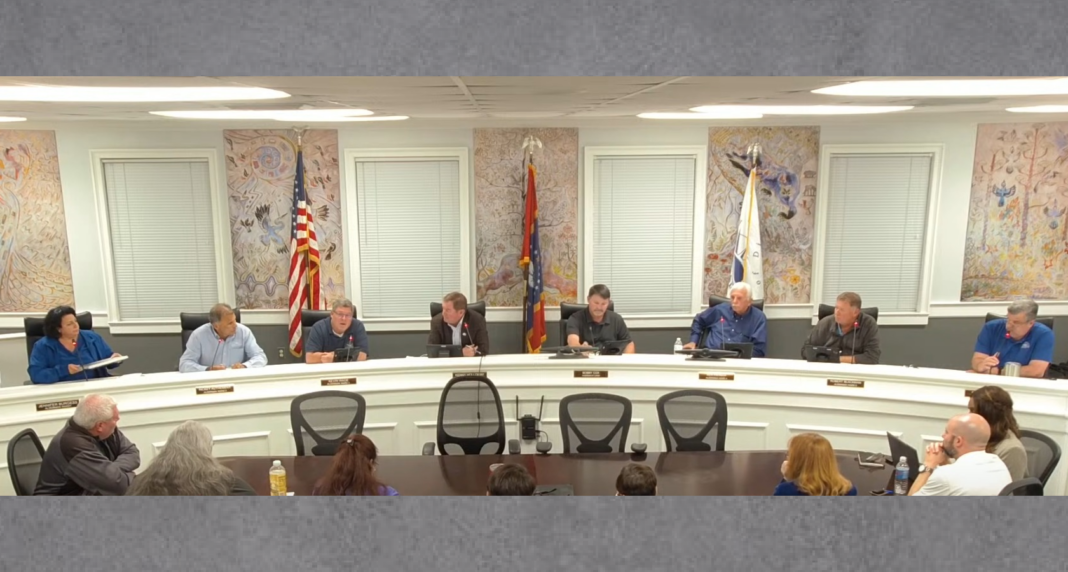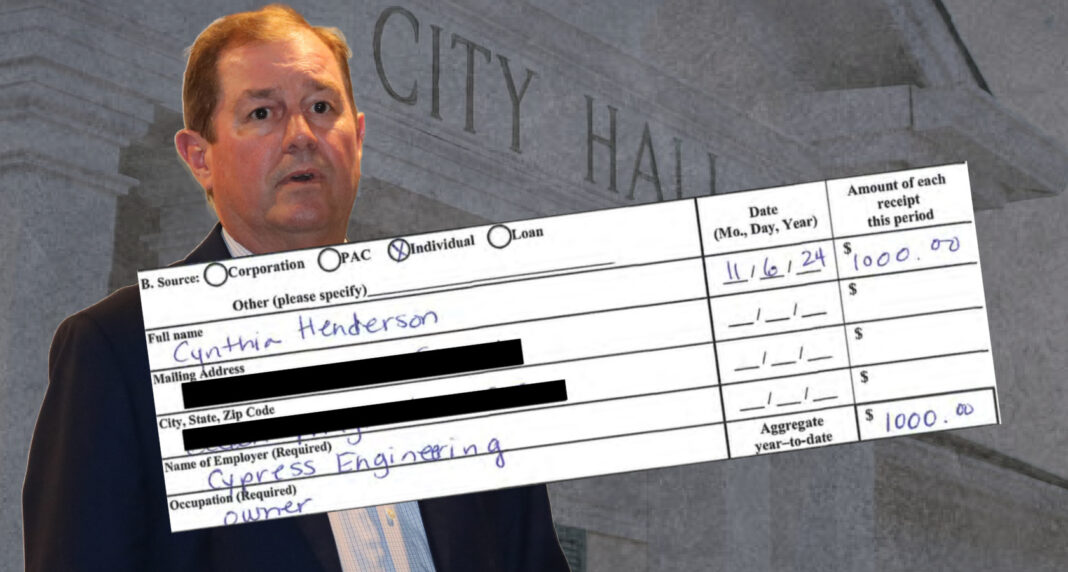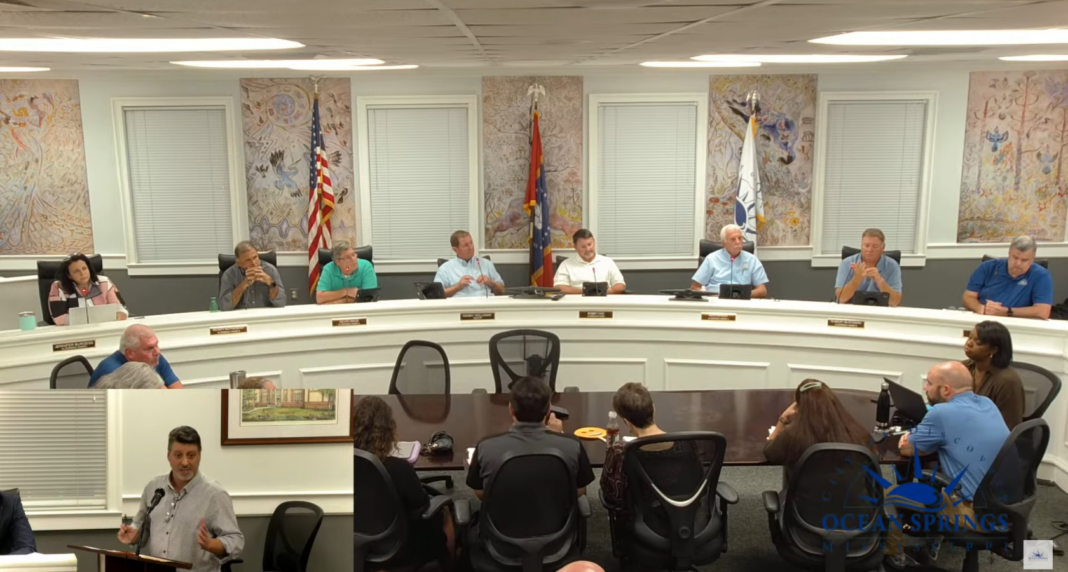OCEAN SPRINGS, MS – The City of Ocean Springs has been caught red-handed manipulating official documents, seemingly to benefit officials and protect elected incumbents. Public records reveal a pattern of intentional and systemic efforts to control the narrative by altering or omitting key details from official meeting minutes.
City Clerk Patty Gaston’s office is responsible for recording the minutes of all public meetings. While Mississippi law only requires that these records include basic details — such as the date, attendance, and actions taken — most cities, including Ocean Springs, go beyond the minimum standard.
Meeting minutes are the official, permanent record of government proceedings, ensuring transparency, accountability, and an accurate historical account of decisions that impact the public.
Resident Comments Scrubbed from the Record
At first glance, the city’s approach to recording public comments and official statements appeared randomly inconsistent, but upon closer examination, the omissions seem far from arbitrary.
Take, for example, the June 2024 Board of Aldermen meeting. The official minutes proudly recorded a resident’s praise for city officials: “Bill Moore thanked the Aldermen for their help at the Red, White, and Blueberry Festival.”
Yet, just a few months later, another resident addressed the Board with sharp criticism about the city’s lack of transparency. The minutes reduced his remarks to a vague footnote: “Michael Phiffer addressed the Mayor and the Board.”
Records Clean Up Statements Made by Officials
And it doesn’t stop at public comments. The selective documentation extends to statements made by city officials, sometimes distorting the historical record of what was actually said.
In a September 2024 meeting, Alderman Jennifer Burgess made a series of false and defamatory claims about a phone call with this journalist. The following day, a recording of the conversation exposed her statements as demonstrably untrue.
Yet, instead of documenting the incident accurately, the official public record scrubbed the entire two minute rant from existence. The only mention of Burgess making a comment in the minutes of that meeting was a mundane note about a fence installation: “Alderman Burgess asked the Parks & Recreation Director when the fence at John Gill Park would be installed.”
Omissions All Around
On December 17, 2024, Alderman Rickey Authement sparked audible backlash from the audience when he insisted that the 2% collected from restaurant bills isn’t a tax. The statement was made during the “Mayor and Aldermen’s Forum” at the Board meeting. But if you read the official minutes, you’d never know the exchange happened.
The only reference to Authement’s comments that night was this carefully curated line from what he said after the tax statement: “Alderman Authement provided an update from the Environmental Attorney regarding the Leica property, stating that the project is on schedule with no health hazards or concerns reported.”
During the same meeting’s forum, Alderman Robert Blackman inaccurately claimed that a recent $52,000 purchase of a surveillance system was merely a replacement for a camera contract approved by the Board on October 23, 2020. However, public records revealed the referenced contract was not replaced and was still in effect. Additionally, the new surveillance technology did not exist in 2020 and there wasn’t even a Board meeting on the date Blackman cited.
Yet, once again, the official minutes erased the claims, only referencing a harmless note he made shortly after the false claim: “Alderman Blackman reminded everyone of the Gay-Lemon Park ribbon-cutting on December 18th at 10:30 AM.”
What Does Transparency Mean?
There are many other examples of selectively recording history, but what’s clear from this short list is that it’s not just sloppy bookkeeping we are seeing — it is an effort to sanitize public discussions, protect officials from scrutiny, and rewrite history to suit those in power.
When the official record omits inconvenient truths and replaces them with selective, polished soundbites, the very purpose of keeping public minutes is undermined. These documents are supposed to serve as an accurate, transparent account of government proceedings, not as a tool for damage control.
Mayor Kenny Holloway recently declared, “Hey, I’m as transparent as anybody.” Yet, the city’s own records tell a different story — one of selective omissions and manipulated narratives.
Whether these omission examples are the result of poor record-keeping or a deliberate effort to control the narrative, the end result is the same: a public record that does not fully reflect what actually happened. And that’s a problem for anyone who values transparency in government.


